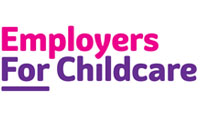£20 cut to Universal Credit due in October
From the start of October, the UK Government plans to cut £20 per week from every household’s Universal Credit award. This will have a significant, negative impact on millions of people – many of whom are in work. In Northern Ireland, there were over 116,000 households on Universal Credit in May 2021, and almost a third of claimants were in work. As well as having an immediate effect on household finances, the change could also create further problems for our childcare infrastructure which is already facing difficulties in terms of the retention and recruitment of key staff.
Just this week, the Recruitment and Employment Confederation revealed that nursery professionals are amongst the 10 occupations facing acute staff shortages across the UK. This will only be exacerbated by the planned £20 per week cut to Universal Credit, from October. Analysis from Action for Children has revealed that nursery assistants will be amongst those workers who are most affected by the cut, and who have faced the biggest overall drop in their benefit income since 2010. Similarly, for many self-employed childminders Universal Credit really is a lifeline.
At a time when the furlough and self-employment income support schemes are also coming to an end, this cut to Universal Credit will put more pressure on a sector and workforce that is already struggling. This is a sector that is critical to families, and to our broader economic and societal recovery from Covid-19. If childcare providers struggle to retain and recruit the vital staff they need, this could have a knock-on effect on the availability of childcare places – an infrastructure that employers and working parents rely on. Furthermore a shortage of staff leading to a shortage of childcare places, could potentially drive up the cost of childcare in areas where childcare places are already in high demand.
Given the range of occupations already facing acute staff shortages, the Government simply cannot afford to make the landscape even more challenging, by impacting on the ability of parents to source the childcare they need in order to work. Out of the entire population of working age people in Northern Ireland who are in employment – approximately 817,000 – just under 43% are parents with dependent children, many of whom are reliant on childcare. Without an affordable, accessible childcare infrastructure, businesses trying to find, or retain, the right people, with the right skills, at the right time, will be doing so from just the remaining 57% of the overall workforce.
Campaigning to ‘keep the lifeline’
Rather than going ahead with this cut to Universal Credit, we are calling on the Government to keep the lifeline and to extend it to those who are on ‘legacy’ benefits and who have so far been left out, such as those on Income Support, Employment and Support Allowance or Job Seekers Allowance.
You can add your voice to the campaign by writing to your MP, sharing your concerns about the cut and asking them to choose to protect people and families when they need support. For further information, and a template letter which you can use and personalise, visit the Joseph Rowntree Foundation website.
We are here to help
If you are concerned about this cut to Universal Credit or wish to find out more about what financial support you may be entitled to, contact our Family Benefits Advice Service and one of our skilled advisors will be able to give you a personalised calculation. For free, impartial and confidential advice on 028 9267 8200 or email hello@employersforchildcare.org.





